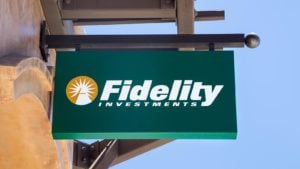
Mutual funds make it easier to get exposure to the stock market without being a pro. Fund managers allocates investors’ capital into dozens, hundreds or even thousands of positions, depending on the mutual fund’s objectives.
Some mutual funds aim to outperform the stock market while others strive to mirror benchmarks like the S&P 500 and the Nasdaq Composite. You won’t have to actively monitor the stock market is a fund manager is doing it for you. Some of the fund managers don’t even stay active with these funds. Passively managed mutual funds don’t require as much work which translates into lower expense ratios.
A low expense ratio allows you to keep more of your returns and makes the mutual fund more affordable. Each of these three funds have reasonable expense ratios and enticing long-term returns. Also, these funds have portfolio allocations that suggest additional returns are likely for long-term investors.
Vanguard Growth Index Fund Admiral Shares (VIGAX)

The Vanguard Growth Index Fund Admiral Shares (MUTF:VIGAX) offers exposure to large-cap growth stocks and has most of its capital allocated toward the Magnificent Seven stocks. The fund has $235.4 billion in total net assets spread across 199 holdings. In addition, it has a 0.50% yield and a 0.05% expense ratio.
VIGAX has been a consistent outperformer with an annualized 14.83% return over the past decade. An emphasis on tech companies has contributed to the fund’s outperformance. More than half of the company’s total assets are allocated to tech companies. The three largest positions in the fund are Microsoft (NASDAQ:MSFT), Apple (NASDAQ:AAPL), and Nvidia (NASDAQ:NVDA). Each of these holdings make up more than 10% of the fund’s total assets.
This growth fund has some medium and small cap companies, but 86.9% of the fund’s capital is allocated toward large-cap companies. Large cap companies are more established than their smaller counterparts and can deliver steady gains for long-term investors.
Schwab S&P 500 Index Fund (SWPPX)

The Schwab S&P 500 Index Fund (MUTF:SWPPX) mirrors the S&P 500, a popular index that holds the top 500 companies based on market cap. A corporation must be profitable to be included in the S&P 500, and the index goes through quarterly adjustments.
Recently, the S&P 500 added Crowdstrike (NASDAQ:CRWD), KKR (NYSE:KKR) and GoDaddy (NYSE:GDDY). These stocks are replacing S&P 500 stocks that have historically underperformed the stock market. Thus, adjustments like these lead to higher returns for investors who follow a buy-and-hold approach for indices.
Moreover, the Schwab S&P 500 Index Fund has delivered an annualized return of 11.21% over the past decade. Also, this fund is very cheap. It only has a 0.02% expense ratio, which means you’ll be keeping almost all of your gains. The index is filled with tech companies and places a strong emphasis on the Magnificent Seven stocks. Microsoft, Apple and Nvidia are the top three position that make up almost 20% of the fund’s total assets. And, more than 75% of the fund’s positions have $70 billion market caps or higher.
Fidelity Select Semiconductors Portfolio (FSELX)

The Fidelity Select Semiconductors Portfolio (MUTF:FSELX) has a higher expense ratio than the other funds on the list. But, it has the highest long-term returns. The fund only has 43 holdings with an emphasis on semiconductor stocks. These stocks have been benefitting from artificial intelligence (AI) tailwinds and can deliver higher returns. Yet, it’s important to note that this mutual fund doesn’t offer much diversification. Other funds give you exposure to other sectors, but FSELX is strictly for people who only want exposure to semiconductor stocks.
Fortunately, Nvidia is the top holding, which makes up 27.91% of the fund’s total assets. While the fund has 72.09% of its assets invested into other semiconductor stocks, most of those stocks will move in tandem with Nvidia. The top-heavy approached has worked out well, with an annualized 16.30% return over the past decade. FSELX has a 0.65% expense ratio.
On this date of publication, Marc Guberti held a long position in VIGAX. The opinions expressed in this article are those of the writer, subject to the InvestorPlace.com Publishing Guidelines.





